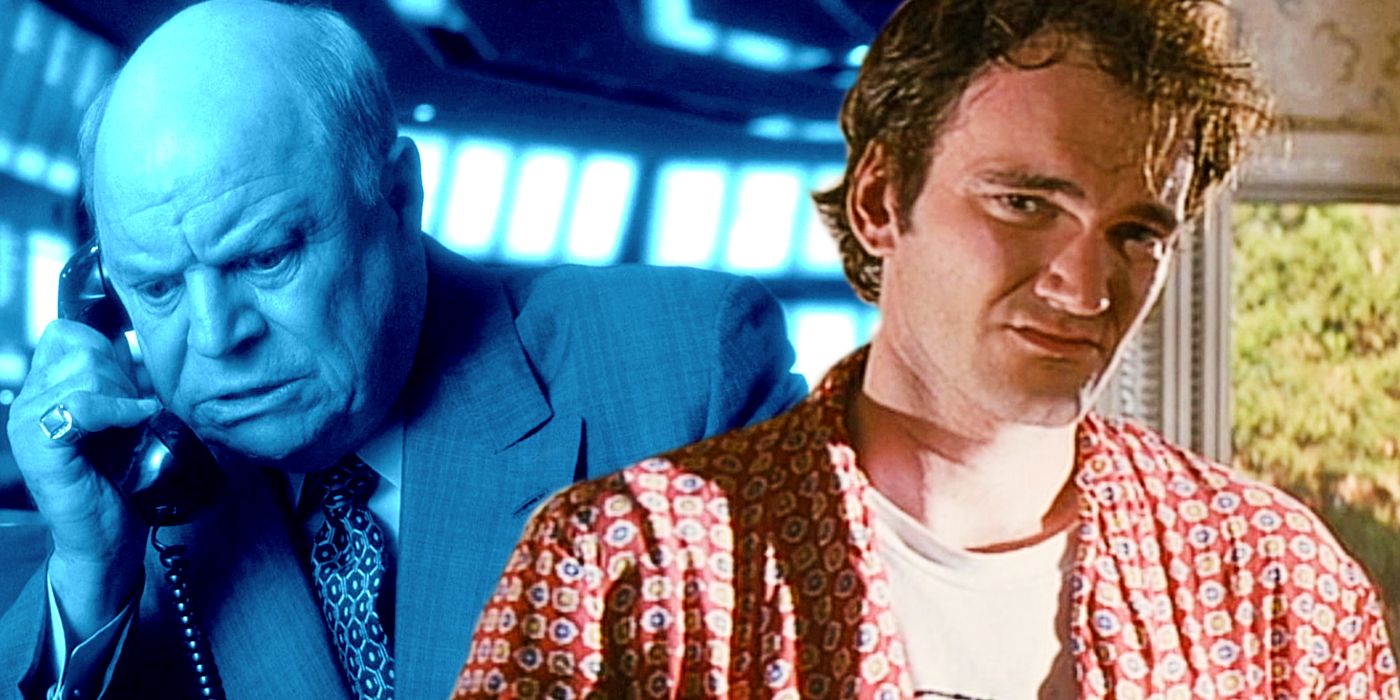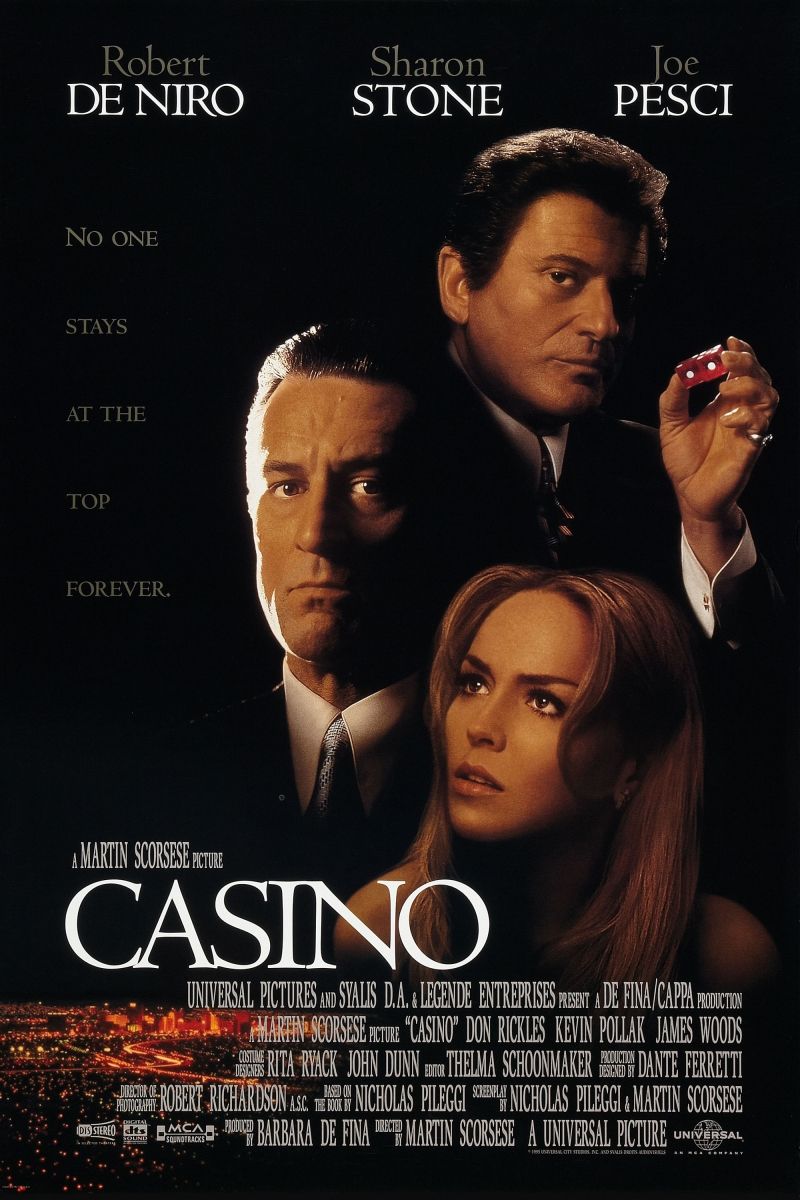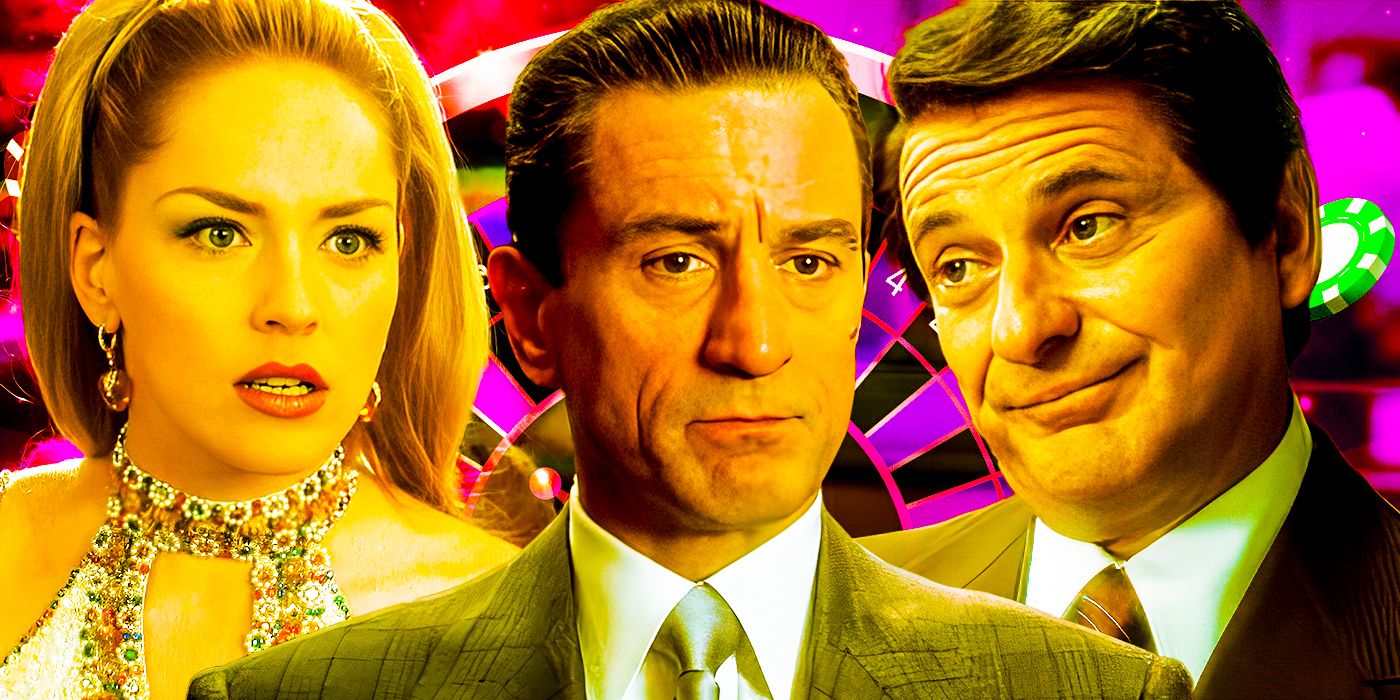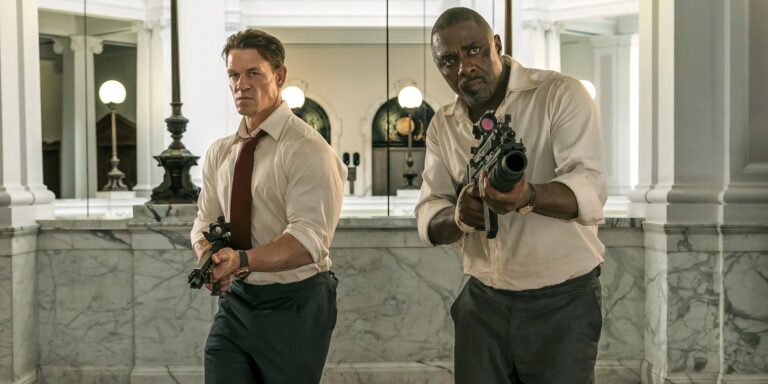Summary
-
Casino
is based on the real-life story of Frank “Lefty” Rosenthal, a professional sports gambler and casino executive in Las Vegas who had connections to organized crime. - Rosenthal survived an assassination attempt in 1982 when a bomb was attached to his car, thanks to a metal plate that shielded him from the explosion’s force.
- After the events depicted in
Casino
, Rosenthal moved to California, and won a court ruling to have his name removed from the “Black Book” before passing away in 2008.
Casino is one of Martin Scorsese’s most notable crime movies and many fans have wondered, “is Casino based on a true story?” Although Martin Scorsese has explored different genres in his career as a filmmaker, he’s best known for his gangster movies. After telling the story of Henry Hill in Goodfellas and visiting the horror genre with Cape Fear and historical drama with The Age of Innocence, Scorsese returned to the gangster genre with Casino. Casino is based on Nicholas Pileggi’s 1995 nonfiction bookCasino: Love and Honor in Las Vegas.
Set in 1973, Casino follows Same “Ace” Rothstein (De Niro), a gambling expert handicapper who is asked by the Chicago outfit to oversee the casino and hotel operations at the Tangiers Casino in Las Vegas. Casino was a critical and commercial hit, marking another success for the Scorsese-Pileggi team-up after working together in Goodfellas. Casino followed the steps of past Scorsese crime movies and is inspired by a real-life story, and while it did take various creative liberties, it has been pointed out by those involved to be largely accurate.
Related
“Casino Has No Plot”: Martin Scorsese’s Surprise Self-Own Explained (Is He Right?)
Casino is one of Martin Scorsese’s best and most praised works, but he has said that the movie has story but “no plot” – and he’s right.
Casino Is Inspired By The Life Of Frank “Lefty” Rosenthal
He Was A Real Life Casino Executive & Crime Associate
What led Pileggi to write about Frank “Lefty” Rosenthal was a 1980 report about a domestic argument between Rosenthal and his wife, Geri McGee (played in Casino by Sharon Stone). Like De Niro’s character, Frank Rosenthal was a professional sports gambler, a casino executive in Las Vegas, and an organized crime associate. Rosenthal learned sports betting as a youth, and by the mid-1950s, he was working with the Chicago Outfit.
Rosenthal was moved to Las Vegas in 1968 to escape police attention, and he secretly ran the Stardust, Fremont, Marina, and Hacienda casinos, which were controlled by the Chicago Outfit, with Anthony Spilotro (Pesci’s character Nicky Santoro) managing the profits. Just like in Casino, Rosenthal survived an assassination attempt in Las Vegas in 1982, where a bomb was attached to the gasoline tank of his car, detonating the moment he started the car.
Rosenthal’s surprising survival is credited to a stout metal plate under the driver’s seat that was installed on all models of that car
Rosenthal’s surprising survival is credited to a stout metal plate under the driver’s seat that was installed on all models of that car, with the plate shielding Rosenthal’s body from the explosion’s force. Rosenthal was thrown from the car and suffered minor burns and a few broken ribs. That same year, following Ginger’s death, Rosenthal left Las Vegas and moved to California with his children. In 1987, he was formally banned from Las Vegas casinos and was placed in “the Black Book,” meaning he couldn’t even enter any Nevada casino due to his ties to organized crime.

Related
How Don Rickles Humiliated Quentin Tarantino On The Casino Set
Don Rickles appears as Billy Sherbert in Casino and when Quentin Tarantino came to the set, the insult comic had to give the new filmmaker some guff.
What Happened To Frank Rosenthal After The Events of Casino?
He Was Revealed To Be An FBI Informant After His Death
Casino covered Rothenstal’s assassination attempt and Ginger’s death, and in the end, it saw De Niro’s Rothstein working as a sports handicapper in San Diego after the Mafia got out of the casino industry, almost all old casinos were demolished, and new ones were built with money from junk bonds. In real life, Rosenthal moved to California and focused on raising his children, and in 1990, he won an unprecedented court ruling to have his name removed from “the Black Book”, but the following year, the ban was reinstated.
Rosenthal later moved to Boca Raton, Florida, where he ran a sports bar, and then moved to Miami, where he ran a sports betting website and served as a consultant for offshore sports betting companies. Frank “Lefty” Rosenthal died on October 13, 2008, and it was later revealed that he had been an FBI informant, as was Geri McGee. As for Rosenthal’s opinion on Casino and the character of Sam Rothstein, he shared De Niro’s character was quite similar to him though not fully (via Casino Discussion), and felt that the depiction of his life’s events was largely accurate.
How Casino Compares To Other Scorsese Movies Inspired By True Stories
Casino Is One Of His Most Accurate Films
Martin Scorsese Movies Based On True Stories
|
Movies |
Release |
|---|---|
|
Raging Bull |
1980 |
|
Goodfellas |
1990 |
|
Gangs of New York |
2002 |
|
The Aviator |
2004 |
|
The Wolf of Wall Street |
2013 |
|
The Irishman |
2019 |
|
Killers of the Flower Moon |
2023 |
Martin Scorsese is a filmmaker with an incredibly varied career in movies, but he is no stranger to taking on true stories in a lot of his projects. Casino is just one of several fact-based films from the iconic director, and how it compares to the others in this category shows the different ways Scorsese approaches telling a true story. Taking a look at the project as a whole, it is one of the most accurate true stories Scorsese has tackled.
Part of the reason Casino is so accurate is that it takes a similar approach to recounting its story as Goodfellas and The Wolf of Wall Street. While some movies based on true stories understandably embellish or change certain facts in order to make for a more “film-friendly” story, with these projects, Scorsese is more interested in dropping the audience into a world and allowing them to simply experience it. He doesn’t tell conventionally narrative stories but rather uses real-life anecdotes to guide the audience through the rise and fall of the protagonists in the movies.
The Irishman followed this formula to a degree, but it was also a movie featuring subject matter that was a lot more well-known to the general public, so there was a need to stick to painting a broader picture of this world rather than being the intimate look at the characters. This can also be seen in The Aviator, which is Scorsese’s most straightforward and conventional biopic. On the other hand, Raging Bull tells a more contained biopic story that allows it to operate as more of a character study that happens to be based in fact.
In the end, Goodfellas is Scorsese’s best movie based on a true story, not only for how accurately it tells the story but also for how impactful the movie is as a whole. Casino is often compared to Goodfellas thanks to their similar styles, and while it might not be on par with Scorsese’s 1990 masterpiece, it similarly excels at mixing facts with an engaging story that leaves audiences thoroughly entertained while also learning the true story.

Casino
Casino is a 1995 crime drama starring Robert De Niro, Sharon Stone, Joe Pesci, and James Woods. The film is based on the book Casino: Love and Honor in Las Vegas by Nicholas Pileggi and centers on Sam ‘Ace’ Rothstein (De Niro), who is asked to run the Tangiers Casino in Las Vegas.
- Release Date
- November 22, 1995
- Runtime
- 178 minutes
Source: Casino Discussion.








